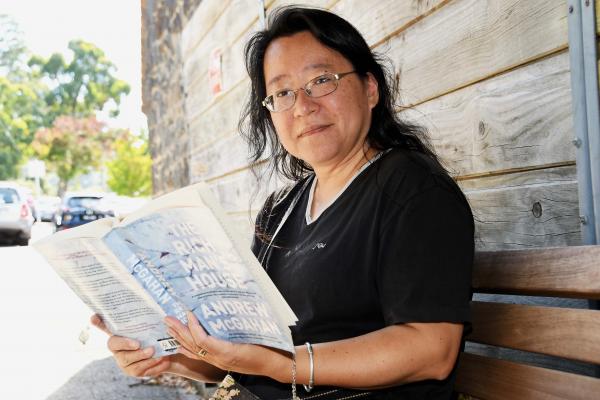By Christine Yunn-Yu Sun
(PASSION FOR PROSE dinkus)
August is Family History Month, and we’re reminded of the famous saying by Ralph Waldo Emerson that every man/woman is a quotation from all his/her ancestors. Indeed, we are the links between the past and the future. Memories and archives of what came before us help guide our efforts to define and position ourselves for what is to come.
In this sense, How to Grow a Family Tree by Eliza Henry Jones (Harper Collins Publishers 2020) is a perfect read for families. Not a guidebook for aspiring genealogists as you’d think.
Rather, it’s a heart-warming story about family, friendship and what home can mean, as summarised by the phrase on its front cover: “Heart is where the home is.”
It’s the story of Stella, who, at the age of 17, lost her home due to her father’s gambling addiction. As her family moves into the local caravan park, Stella struggles to deal with the chaos of her life, including but not limited to sharing a bed with her sleep-walking sister who apparently burned down the school library.
While the two take it upon themselves to “save” their father, their mother desperately tries to keep the family afloat. Right at this juncture, Stella receives a letter from her biological mother, who’s been trying to contact her for the past ten years. It becomes one more emotional hurdle that she has to overcome.
Luckily, Stella has read every self-help book she can find and knows a thing or two about helping people…or does she? As the story unfolds, we see her slowly but surely learning the valuable lesson that life is far more complex and confounding than any book can possibly analyse. Not everyone wants to be helped. Not everything can be fixed.
More importantly, not every question has an answer, and this is definitely not a story trying to assure teenagers that everything will turn out for the best in their daunting transition to adulthood. The author does a great job demonstrating the opposite, allowing Stella as the first- person narrator to try and often fail to be strong.
Certainly not everyone can and should be a hero. Stella’s voice is genuine and unique precisely because she’s not a know-it-all. As much as she tries to use all the “I” statements and “feeling words”, to compartmentalise her thoughts and feelings in order to access her “inner goddess” – she is, after all, only 17.
Interestingly, while reading Stella’s story, this reviewer happens to be watching Doctor Who. In the episode “The Battle of Ranskoor Av Kolos”, Andinio of the Ux has this advice for her young disciple Delph: “The more we learn, the less we realise we know. This is our existence. The world is not to be understood, only experienced.”
Come to think of it, perhaps it’s the same concept conveyed in How to Grow a Family Tree. The only way to learn from life is to live it. The best way to research your family history is to be with yours.







